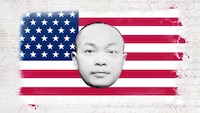
The Battle Over Birthright Citizenship: Understanding the Legal Fight
In the ever-shifting landscape of American politics, few issues stir up as much debate and emotion as immigration and citizenship. Recently, a federal judge in Seattle named John C. Coughenour made headlines by issuing a nationwide injunction against an executive order from President Donald Trump. This order aimed to limit birthright citizenship, sparking a legal battle that touches on the very principles of the U.S. Constitution. Let’s break down what all of this means—what birthright citizenship is, why it’s so important, and how the law is at the center of a fight that could shape America’s future.
What’s Birthright Citizenship?
First off, let’s clarify what we mean by “birthright citizenship.” The United States has a long-standing principle that anyone born on U.S. soil is automatically a citizen, thanks to the 14th Amendment of the Constitution. This amendment was ratified after the Civil War, primarily to ensure that all people, especially formerly enslaved individuals, would have the right to citizenship. The key phrase is “All persons born or naturalized in the United States, and subject to the jurisdiction thereof, are citizens of the United States.”
This means that even if your parents are not U.S. citizens, if you’re born here, you’re a citizen. This principle is unique compared to many other countries, where citizenship may depend on your parents’ nationality or legal status. Birthright citizenship is an essential part of America’s identity as a melting pot, bringing together people from diverse backgrounds under one flag.
The Trump Administration’s Executive Order
Now, let’s shift gears to President Trump’s executive order. During his presidency, Trump often expressed that he wanted to limit immigration and change how birthright citizenship is applied in the U.S. His executive order aimed to do just that. The order sought to redefine who qualifies for citizenship based on where they were born and the legal status of their parents. In simpler terms, Trump wanted to change the rules so that children born to non-citizens wouldn’t automatically become citizens themselves.
But why would he want to do that? Trump and his supporters argued that limiting birthright citizenship would discourage illegal immigration. They believed that if people knew their children wouldn’t automatically gain citizenship, it might deter them from coming to the U.S. However, opponents argued that changing this long-standing law would be unjust, un-American, and harmful to countless families.
Judge Coughenour’s Ruling
Enter Judge John C. Coughenour, who serves on the federal bench in Seattle. When he reviewed Trump’s executive order, he didn’t hold back. He called it “blatantly unconstitutional.” Think about that for a second: this wasn’t just a routine legal decision; a federal judge essentially said that the President of the United States was trying to overstep his authority and violate the Constitution. Pretty serious stuff!
Coughenour emphasized that birthright citizenship is a fundamental right protected by the Constitution. He pointed out that any changes to the 14th Amendment should happen through the formal constitutional amendment process—a lengthy and complicated process that involves a lot of debate and support from both houses of Congress and the states—not through an executive order, which is a power that allows the president to manage the operations of the federal government.
This ruling comes on the heels of similar decisions from other judges around the country, including one from Maryland. The legal landscape is becoming quite complex as multiple states and civil rights groups join the fight against the administration’s attempts to rescind birthright citizenship. Coughenour’s injunction means that the executive order cannot be enforced while the legal battles continue.
The Importance of the Rule of Law
One of the most significant takeaways from Coughenour’s comments is his criticism of Trump’s approach to the rule of law. The “rule of law” is a fundamental principle in democracy. It means that everyone, including government officials, must follow the law. When Coughenour said that Trump views the rule of law as an “obstacle,” he was highlighting a broader concern that some leaders may feel tempted to ignore legal processes when it suits their agenda. This is a slippery slope; ignoring the law can lead to chaos and undermine the very foundations of democracy.
The Future of Birthright Citizenship
So, what’s next? The Trump administration has 60 days to appeal Judge Coughenour’s injunction. If they choose to do so, the case could eventually make its way up to the Supreme Court, the highest court in the land. That’s where the ultimate decisions will be made about the constitutionality of birthright citizenship. The stakes are incredibly high—not just for immigrants but for the American ideals of fairness, equality, and justice.
This legal battle over birthright citizenship is not just about legal jargon or political power plays. It has real-life implications for countless families across the country. Imagine being born in the U.S. to parents who came here seeking a better life. You grow up in America, speak English fluently, and identify as an American. But if changes are made to birthright citizenship, that fundamental part of your identity could be called into question.
As you can see, debates about citizenship are intertwined with America’s history and identity. People come to the U.S. seeking opportunities and a chance to be part of the “land of the free.” Birthright citizenship allows them to fully participate in American life, contributing to communities, economies, and culture.
Engaging with the Issue
This situation presents a complex web of legal, social, and emotional challenges. Many people have strong opinions on both sides of the issue. Some argue for stricter immigration controls and for changing the status quo, while others believe passionately in maintaining the rights granted by the Constitution.
What do you think about the claims surrounding birthright citizenship? Do you believe it should be protected as a fundamental right, or do you see merit in changing the laws? Share your thoughts—I’d love to hear your opinions or experiences related to this important topic!





